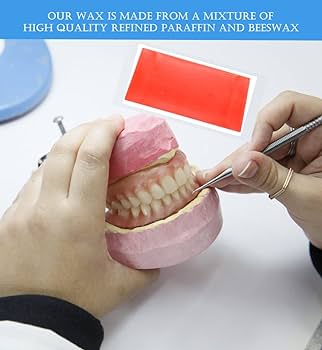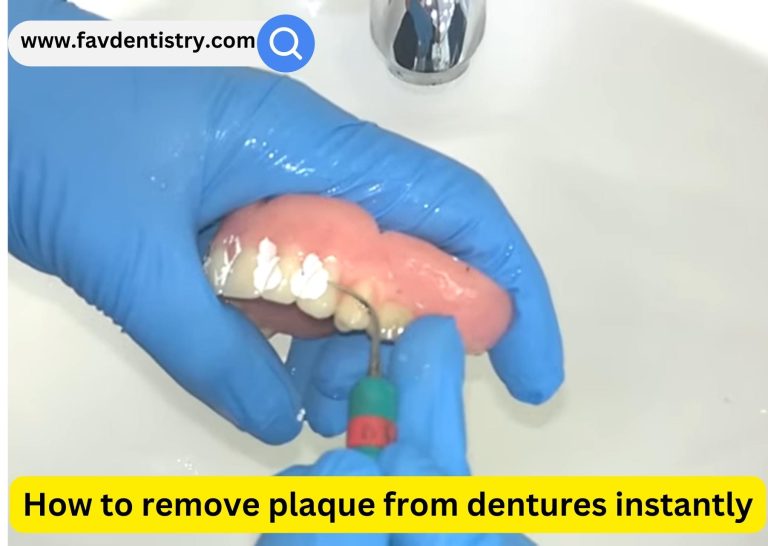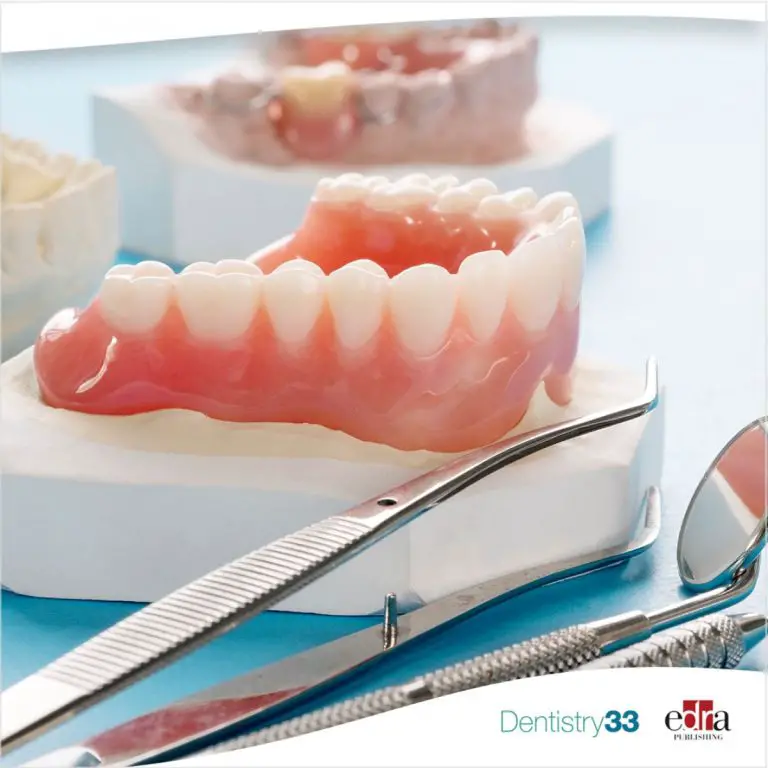Last Updated on 3 weeks by DR. ALBIN SIPES
Understanding The Impact Of Ill-Fitting Dentures
The Discomfort Caused By Dentures That Are Too Big For The Mouth:
-
Ill-fitting dentures can cause sore spots, pain, and irritation in the mouth.
-
The constant rubbing against the gums and sensitive oral tissues can lead to the development of mouth sores and ulcers.
-
Eating and speaking can become challenging and uncomfortable, affecting one’s confidence and quality of life.
-
The excessive movement of oversized dentures can cause difficulty in securing them, leading to embarrassing situations.
Common Signs And Symptoms Of Ill-Fitting Dentures:
-
Gum inflammation and redness.
-
Difficulty in chewing and biting into food.
-
Slippage or movement of dentures while talking or eating.
-
Pain or discomfort in the jaw, neck, and head.
-
A clicking sound when chewing or speaking.
How Poorly Fitting Dentures Can Affect Oral Health And Daily Life:
-
Ill-fitting dentures can cause uneven pressure on the gums, leading to accelerated bone loss in the jaw.
-
Poorly fitted dentures can contribute to the development of oral infections such as fungal infections and gum disease.
-
Difficulty in eating certain foods can lead to poor nutrition and subsequent overall health issues.
-
Ill-fitting dentures can have a negative impact on one’s social interactions and self-esteem.
Professional Assessment Of Denture Fit
Dentures Too Big For Mouth: Professional Assessment Of Denture Fit
Importance Of Seeking Professional Help For Denture Fitting Issues:
-
Denture fitting is a specialized area that requires the expertise of a qualified dental professional.
-
Ill-fitting dentures can lead to a range of issues, such as sore spots, difficulty in chewing, and speech problems.
-
A dentist experienced in denture adjustments can assess the fit of your dentures and make the necessary adjustments to ensure optimal comfort and functionality.
-
Properly fitted dentures enhance overall oral health and well-being, allowing you to enjoy a better quality of life.
Consulting With A Dentist Experienced In Denture Adjustments:
-
Schedule an appointment with a dentist who has expertise in denture adjustments.
-
The dentist will evaluate your dentures and examine your mouth to determine if they are too big for your mouth.
-
They may perform various tests and measurements to assess the fit and identify areas that require modification.
-
The dentist will discuss the necessary adjustments with you and guide you on how to improve the fit of your dentures.
The Examination Process To Determine If Dentures Are Too Big For The Mouth:
-
The dentist will examine your mouth and assess the fit of your dentures.
-
They will look for signs of discomfort, such as sore spots or areas of irritation.
-
The dentist may ask you to try speaking and chewing while wearing the dentures to see if there are any difficulties.
-
Measurements may be taken to ensure the dentures align correctly with your teeth and gums.
-
Based on the examination findings, the dentist will determine if the dentures are too big and recommend the necessary adjustments.
1. Denture Relining
Explaining The Concept Of Denture Relining
The Process Of Relining To Improve Denture Fit
-
Evaluation: First, a dentist will assess the current fit of your dentures and determine if relining is necessary. They will examine how the dentures sit in your mouth and check for areas of discomfort or movement.
-
Material selection: Once it’s determined that relining is needed, the dentist will choose the appropriate relining material. This material is typically a soft or hard resin that is compatible with your dentures.
-
Reshaping the base: The next step involves reshaping the denture base by applying the chosen relining material. It can be done chairside or in a dental laboratory, depending on the complexity of the case.
-
Precision adjustment: The dentist will ensure that the relined dentures align properly with your gums and natural teeth (if any). This may involve trimming excess material and making necessary adjustments for optimal fit and comfort.
Pros And Cons Of Denture Relining
Pros:
-
Improved fit: Denture relining can significantly enhance the fit of your dentures, eliminating discomfort and the feeling of them being too big for your mouth.
-
Better functionality: With properly fitting dentures, you can chew, speak, and smile with confidence, knowing that your dentures will stay in place.
-
Cost-effective solution: Relining your dentures is generally more affordable than getting an entirely new set, making it a budget-friendly option.
Cons:
-
Time-consuming process: Denture relining typically requires several dental visits, as the reshaping and adjustments need to be done meticulously for a perfect fit.
-
Temporary solution: While denture relining can improve the fit temporarily, it may not provide a permanent solution. Over time, the shape of your mouth may change, necessitating further adjustments or a new set of dentures.
2. Denture Adjustment
Understanding The Role Of Denture Adjustments In Resolving Size Issues:
-
Denture adjustments play a crucial role in ensuring that your dentures fit correctly in your mouth, addressing any size-related concerns.
-
Dentures that are too big can cause discomfort, difficulty speaking, eating, and overall poor denture performance.
-
Adjusting the size of your dentures can improve the fit and prevent them from slipping or moving around in your mouth.
-
It allows for a better alignment with your gums and adjacent teeth, enhancing the overall functionality of your dentures.
How A Dentist Performs Denture Adjustments:
-
The dentist will carefully examine your dentures and evaluate the areas that need adjustment.
-
Using specialized tools, the dentist will make precise modifications to the denture base, ensuring it aligns correctly with your gums and mouth shape.
-
The dentist may also adjust the clasps, snaps, or other attachments to improve stability and fit.
-
It may involve adding or removing material from specific areas, reshaping the dentures, or making adjustments to the bite alignment if necessary.
The Benefits Of Denture Adjustment For Comfort And Functionality:
-
Properly fitting dentures significantly improve overall comfort, making it easier to wear them for extended periods without irritation or sore spots.
-
A well-fitting denture provides better stability, reducing the chances of slippage during daily activities like eating and talking.
-
Denture adjustments can improve speech, making it easier to pronounce words clearly and confidently.
-
Enhanced functionality allows you to enjoy a broader range of food options, providing a better chewing experience for improved nutrition.
3. Denture Replacement
-
Ill-fitting dentures: If your dentures are too big for your mouth, they may not provide a secure fit. This can lead to discomfort and difficulty when speaking or eating.
-
Loose dentures: Dentures that are too big can become loose and unstable in your mouth. This can make it challenging to speak clearly and eat comfortably.
-
Sore spots or ulcers: Dentures that are too large can cause friction against your gums, leading to painful sore spots or ulcers.
-
Difficulty chewing: When dentures are too big, it can be hard to chew food correctly, affecting your ability to digest and enjoy meals.
We are discussing the process of obtaining new dentures.
-
Dental assessment: Your dentist will examine your mouth and evaluate the fit of your current dentures. They may take measurements or impressions to ensure the new dentures are correctly sized and customized to your mouth.

-
Denture fabrication: Once the measurements are taken, your dentist will send them to a dental laboratory. There, skilled technicians will craft your new dentures using high-quality materials.
-
Fitting and adjustments: When your new dentures are ready, your dentist will fit them into your mouth and make any necessary adjustments for optimal comfort and functionality.
-
Follow-up appointments: It’s essential to attend follow-up appointments with your dentist to ensure that the new dentures fit well and address any concerns you may have.
Home Remedies And Tips For Temporary Relief
Temporary Measures To Alleviate Discomfort Caused By Ill-Fitting Dentures:
-
Rinse with warm salt water: Mix half a teaspoon of salt with a glass of warm water and use this solution to rinse your mouth. Saltwater can help reduce inflammation and provide temporary relief.
-
Apply a denture adhesive: Using a denture adhesive can improve the fit of your dentures by creating a secure bond between the denture and your gums, reducing movement and discomfort.
-
Use a denture reline kit: These kits contain a soft material that you can apply to the denture’s surface to create a better fit. It provides a temporary cushioning effect and can be particularly useful when waiting for a professional adjustment.
-
Chew slowly and choose softer foods: Opt for softer foods that are easier to chew, reducing the pressure on your gums and minimizing discomfort.
-
Avoid sticky or hard foods: Stay away from sticky or hard foods that can put excessive strain on your ill-fitting dentures and increase discomfort.
Home Remedies To Adjust Denture Fit Temporarily:
-
Denture adjustment with a moistened cotton ball: Dampen a cotton ball or gauze with warm water and place it between the denture and your gum. Apply gentle pressure to create a better fit and alleviate discomfort.
-
Dental wax application: Dental wax can be applied to areas where the dentures are causing irritation or rubbing against your gums. It acts as a temporary cushion and provides relief.
-
Warm water soak: Soaking your dentures in warm water can help soften the material, making it more pliable and easier to adjust temporarily. This can be useful if your dentures feel too bulky or loose.
What Should You Do If Your Dentures Are Too Big?





